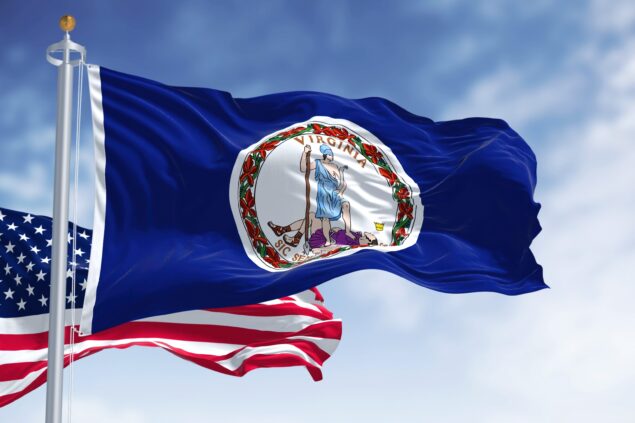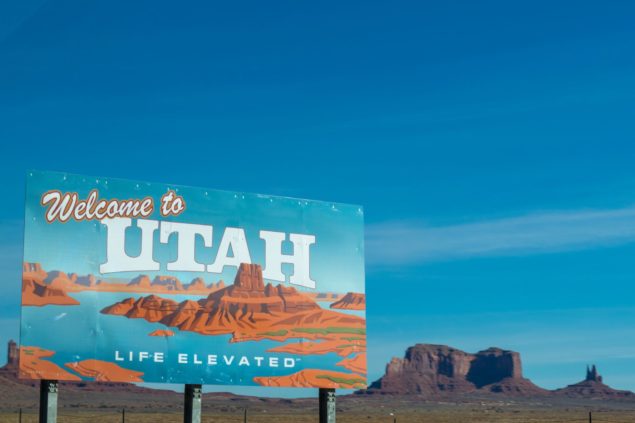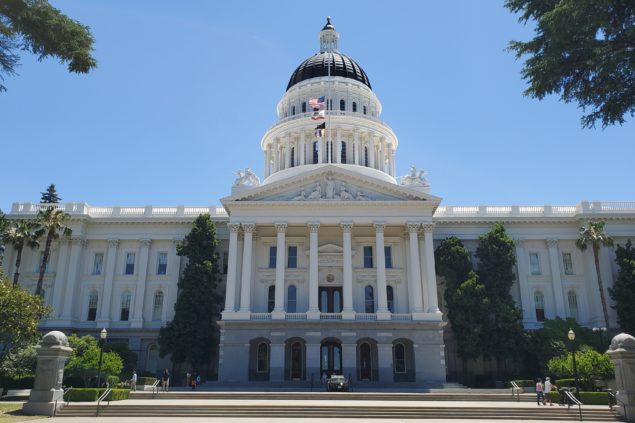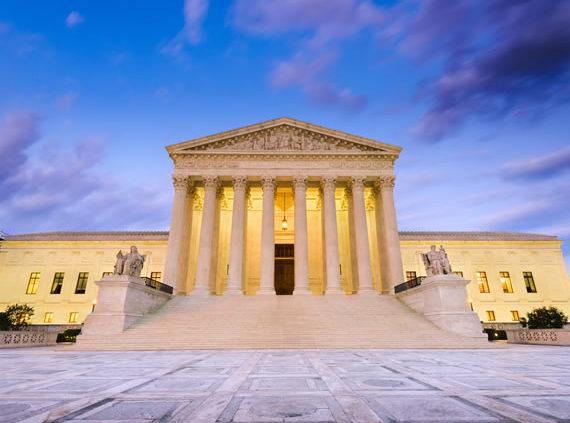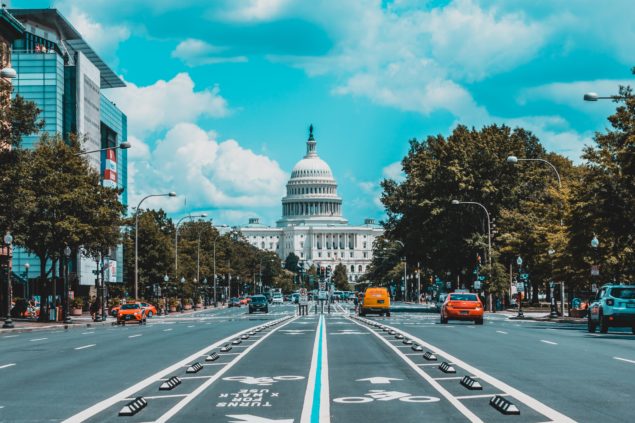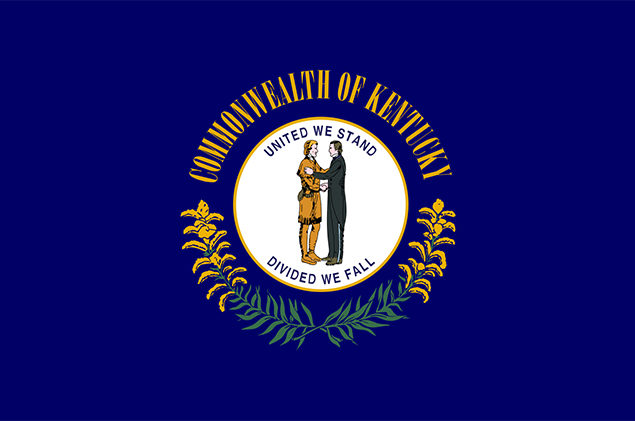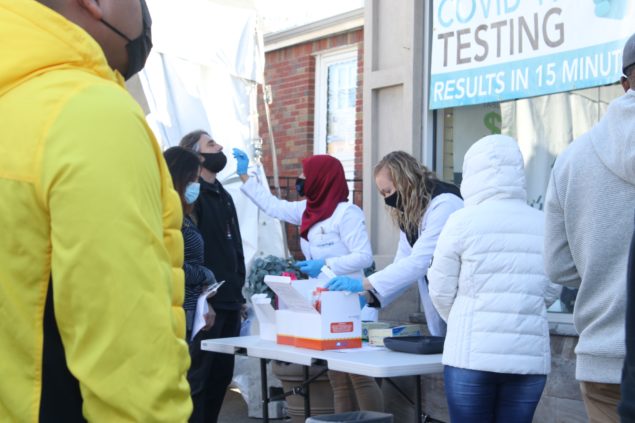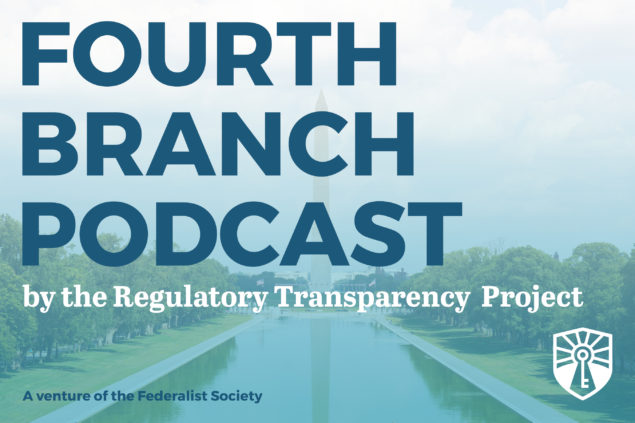State & Local
Topics
From zoning restrictions to occupational licensing, regulations by state and local governments often have the most direct impact – both positive or negative – on individuals and communities. Given the importance played by these regulations, how can we ensure that their benefits outweigh their costs?
Beyond Government-Assigned Schooling; Beyond Government-Mandated Teacher Licensure
As education freedom expands, teacher freedom will expand as well. Reforms to the teacher workforce – namely, hiring practices largely dictated by state certification laws – will need to accompany the growth of school choice, so that private providers will have a large hiring pool of qualified teachers who align with their schools’ missions and values. A failure to reform existing certification practices that have served neither schools nor students well will risk replicating the existing public school model over time.
Read this paperThe World Needs More Lawyers
The American legal profession, as well as those it serves, would benefit from lowering the barriers to entry to the practice of law. Several licensing barriers unnecessarily contribute to the high cost of legal services, which inhibit access to justice for ordinary Americans. In some respects, legal licensure is categorically distinct from the licensure of other highly regulated professions. This suggests that a particular focus on legal licensure may be appropriate. We therefore explore the implications of modest reforms that would advance the public interest, with an eye to the encouragement of competitive markets in legal services, and the protection and preservation of the fiduciary nature of legal services.
Read this paperCOVID-Era Healthcare Solutions for the Post-COVID World
The authors of this paper examine how healthcare laws and regulations were adjusted to deal with the COVID-19 pandemic, and argue that some of these changes should be made permanent.
Read this paperChecks, Balances, and Emergencies: Tensions Between Emergency Management Acts and Constitutional Governance
The authors of this paper assess how Emergency Management Acts have been used during the COVID-19 pandemic and offer suggestions for how they can be adjusted to better prepare state and local governments for future emergencies.
Read this paperLegislative Exits from the Land Use Labyrinth
In this paper, the authors argue that land use restrictions limit housing supply and increase housing costs, lay out why the judiciary is unlikely to solve this problem, and evaluate several potential legislative solutions.
Read this paperTen Reforms to Spur Coronavirus Recovery
In this paper, the authors offer ten policy proposals for mitigating the economic fallout of the COVID-19 pandemic. These proposals include both positive reforms and warnings about pitfalls that are likely to make the situation worse.
Read this paperThe Land Use Labyrinth: Problems of Land Use Regulation and the Permitting Process
In this paper, the authors argue that the uncertainty in local land-use rules often makes new building prohibitively risky, costly, and complex. The ambiguity of these rules and the lack of substantial legal recourse for those seeking to build, they suggest, hampers entrepreneurship and healthy economic development and increases inequality. Finally, the authors suggest a set of reforms that might improve the current state of affairs.
Read this paperLive, Work, Share: Putting out the Welcome Mat to Home-Sharing and Home-Based Businesses
In this paper, Anastasia Boden and Jonathan Riches argue that home-based businesses are an important part of the economy with a very long history. State and local regulators, the authors claim, have often saddled home-based businesses with cumbersome rules that do more to hamper the property rights of homeowners than protect the public interest.
Read this paperManaging the Regulatory Thicket: Cumulative Burdens of State and Local Regulation
The authors of this paper introduce and identify the ‘regulatory thicket’ — the compliance burdens caused by the accumulation of individual federal, state, and local regulations — and its effect on the ability of entrepreneurs and small business owners to pursue the American Dream. The authors explore this systemic issue and propose guidelines to trim the ‘regulatory thicket.’
Read this paperOccupational Licensing Run Wild
The authors of this paper provide a historical analysis of occupational licensure in the United States, discuss the costs and benefits of our licensing system, explore so-called “licensing creep,” and propose solutions to help address “occupational licensing run wild.”
Read this paperExplainer Episode 64 – Union Release Time: Who Should Pay?
In this episode, Jon Riches and James Sherk discuss fundamental questions related to government labor unions and their impact on…
Listen to this podcastExplainer Episode 60 – Bias Response Teams, American College Campuses, and Free Speech
What are bias response teams (BRTs)? What role do they play on American college campuses? And how is freedom of…
Listen to this podcastVirginia’s New Approach to Regulatory Modernization
Regulatory modernization has been a topic of nationwide interest in recent months. With its recently revised Circular A-4, the federal…
Listen to this podcastA Discussion on NMFS’s Regulatory Authority: Whales, Speed Limits, and Legal Questions
The National Marine Fisheries Service (NMFS), an arm of the National Oceanic and Atmospheric Administration (NOAA), recently saw one of…
Listen to this podcastDeep Dive Episode 266 – The Evolution of HUD’s Affirmatively Furthering Fair Housing Rules: A Look at the Latest Proposed Regulation
The United States Department of Housing and Urban Development’s Affirmatively Furthering Fair Housing rules have careened wildly back and forth as administrations have changed.
Listen to this podcast[Webinar] The Evolution of HUD’s Affirmatively Furthering Fair Housing Rules: A Look at the Latest Proposed Regulation
HUD’s Affirmatively Furthering Fair Housing rules have careened wildly as administrations have changed. Experts discuss the latest proposal’s requirements for state and local governments.
Listen to this podcastExplainer Episode 42 – Unlocking Transparency in K-12 Education
In this episode, learn how “parental rights” have become a growing influence on education reform.
Listen to this podcast
Deep Dive Episode 225 – State Constitutions and Individual Liberty: State or Federal Government as Primary Custodian of Individual Rights?
An expert panel joined us to debate the different purposes and rights guarantees within state constitutions and the federal constitution.
Listen to this podcastDeep Dive Episode 221 – A Discussion on Occupational Licensing feat. Utah Gov. Spencer Cox
Utah Gov. Spencer J. Cox and an expert panel joined us to discuss occupational licensing reform.
Listen to this podcastDeep Dive Episode 217 – The Separation of Powers, From Washington to Sacramento
An expert panel debates the distinctions between the federal and state separation of powers doctrines, using California as an example.
Listen to this podcastDeep Dive Episode 214 – Emergency Management Statutes: Lessons from COVID-19
An expert panel debated whether states should reform their emergency management statutes in light of our experience with emergency governance over the past 24 months.
Listen to this podcastExplainer Episode 34 – Institute for Justice’s “Barriers to Business” Report
Andrew Meleta and Alex Montgomery joined Jon Riches to discuss how cities can better attract and support entrepreneurs.
Listen to this podcastExplainer Episode 33 – Litigation Update: Shaw v. Metro. Gov’t
Paul Avelar and Braden Boucek joined the podcast to break down a Tennessee State Supreme Court zoning case from their clients’ point of view.
Listen to this podcastExplainer Episode 32 – The Vaccine Mandate Cases and the Future of Administrative Law
An expert panel breaks down the implications of the Supreme Court’s vaccine mandate rulings for the future of administrative law.
Listen to this podcastExplainer Episode 30 – An Update on Telemedicine Laws and Regulations
Experts explore the rationales behind telemedicine regulations and examine how reforms and lawsuits might transform how patients receive care.
Listen to this podcastDeep Dive Episode 194 – Examining the CDC’s Eviction Moratorium
Top experts dive deep into the legal issues surrounding the CDC’s eviction moratorium and the relief sought by both landlords and renters.
Listen to this podcastDeep Dive Episode 192 – Gender Based Board Quotas, the Fourteenth Amendment, and Meland v. Weber
An expert panel discusses the underlying law and the likely next steps in Meland v. Weber, a case regarding gender based corporate board quotas in California.
Listen to this podcastDeep Dive Episode 187 – Courthouse Steps Decision: Cedar Point Nursery v. Hassid
Attorney Wen Fa analyzes the Supreme Court’s decision in Cedar Point Nursery v. Hassid.
Listen to this podcastExplainer Episode 28 – Rep. Harshbarger on the Freedom to Work Act
Rep. Diana Harshbarger joins Shoshana Weissmann to discuss the “Freedom to Work Act” and the most prevalent arguments for and against its passage.
Listen to this podcastDeep Dive Episode 181 – State of Emergency? Kentucky’s Legislature vs. Governor
Mitchel Denham and Oliver Dunford debate the implications of two cases that could shape the future of emergency government powers in Kentucky.
Listen to this podcastExplainer Episode 27 – Occupational Regulations in the Beauty Industry
Anastasia P. Boden interviews Daniel Greenberg about his new article, “Regulating Glamour: A Quantitative Analysis of the Health and Safety Training of Appearance Professionals.”
Listen to this podcastExplainer Episode 26 – Land Use Restrictions and Legislative Reform
In a conversation moderated by Kimberly Hermann, Braden Boucek and Emily Hamilton discuss several proposed legislative reforms to land use restrictions.
Listen to this podcastDeep Dive Episode 157 – Regulating Land Use During a Pandemic
What role do policymakers have to play in facilitating efficient land use during this uncertain time? Experts debate.
Listen to this podcastDeep Dive Episode 150 – Regulating Business in the Age of COVID-19
In this live podcast, Brian Kabateck, Luke Wake, and Clark Neily address vital questions raised by COVID-19, including whether this is the right time for states to liberalize economic regulations more generally.
Listen to this podcastDeep Dive Episode 148 – Civil Liberties and COVID-19 Shelter in Place Orders
On November 19, 2020, RTP co-hosted an online event featuring Professor Julia Mahoney and J. Gregory Grisham.
Listen to this podcastDeep Dive Episode 140 – It Can Be Done Live: The Future of Our Food
An expert panel explores the potential of human ingenuity to solve the problems we face when it comes to our food and the conditions necessary to make those solutions a reality.
Listen to this podcastDeep Dive Episode 134 – It Can Be Done Live: The Future of Our Seas
An expert panel explores the potential of human ingenuity to solve the problems facing our oceans and the conditions necessary to make those solutions a reality.
Listen to this podcastExplainer Episode 15 – Equality in Government Contracting
In the midst of the COVID-19 pandemic, the federal government is waiving affirmative action requirements in federal construction projects. Wen Fa discusses whether state and local regulations should follow suit.
Listen to this podcastDeep Dive Episode 108 – Regulating Home-Sharing and Home-Based Businesses
In this episode, Brooks Rainwater and Jon Riches discuss developments in state and local regulations surrounding home-sharing and home-based businesses. How do we balance safety and public goods with innovation and entrepreneurialism?
Listen to this podcastDeep Dive Episode 96 – New York’s “Rent Stabilization” Law
Does New York’s “rent stabilization” law violate the federal Constitution? Richard Epstein and Andrew Pincus discuss.
Listen to this podcast
Explainer Episode 5 – Arizona’s Licensing Reform
What are the costs and benefits of occupational licensing? Why do many believe that the laws around licensing ought to be reformed, and what has Arizona been doing to address these concerns? Jon Riches of the Goldwater Institute gives an overview of this issue as it has played out in the Grand Canyon State.
Listen to this podcastExplainer Episode 2 – The Dynamex Decision and its Implications for Independent Contractors
In this episode, Luke Wake explores the implications of the recent California Supreme Court decision in Dynamex v. Superior Court for small business owners in California.
Listen to this podcastDeep Dive Episode 53 – Analyzing the Regulatory Thicket
Brooks Rainwater and Luke Wake explore whether we should maintain the status quo, seek to scale-back existing regulation, and/or winnow existing regulatory regimes.
Listen to this podcastDeep Dive Episode 31 – Tennessee Licensing Board Alarmed by Entrepreneur’s Facial Recognition Software
Adam Jackson (Edge AI) and Braden Boucek (Beacon Center of Tennessee) discuss how Adam has been barred by the Tennessee Alarm Systems Contractors Board from distributing the software he developed to identify potentially dangerous individuals and prompt a security response before violence occurs.
Listen to this podcastDeep Dive Episode 30 – Arizona Dumps Deference: The Beginning of the End for Chevron?
Philip Hamburger (Columbia Law School) and Jonathan Riches (Goldwater Institute) discuss Arizona’s recent passage of legislation eliminating Chevron deference in Arizona state courts, how this new law might change state agency rulemaking and enforcement, and whether this law can serve as a model for the rest of the country, and the federal government.
Listen to this podcastDeep Dive Episode 28 – Virginia’s (Un)happy Hour: Is the State Restricting Ads and Economic Rights?
Geoff Tracy (Chef Geoff’s) and Anastasia P. Boden (Pacific Legal Foundation) discuss Geoff’s pending case against Virginia’s happy hour advertising law and the potential First Amendment issues at stake.
Listen to this podcastDeep Dive Episode 18 – Regulatory Hurdles for Entrepreneurs: The Story of Project Belle
Armand Lauzon (Project Belle) and Braden Boucek (Beacon Center of Tennessee) discuss Project Belle and the company’s experience with the Tennessee State Board of Cosmetology.
Listen to this podcastPanel I: Broad Perspectives on Legal Licensing Reform
Featuring: Braden Boucek, Vice President of Litigation, Southeastern Legal Foundation Lucian Pera, Partner, Adams & Reese LLP Stephen Younger, General Counsel, Nixon…
Watch this videoVirginia’s New Approach to Regulatory Modernization
Regulatory modernization has been a topic of nationwide interest in recent months. With its recently revised Circular A-4, the federal…
Watch this videoA Discussion on NMFS’s Regulatory Authority: Whales, Speed Limits, and Legal Questions
The National Marine Fisheries Service (NMFS), an arm of the National Oceanic and Atmospheric Administration (NOAA), recently saw one of…
Watch this videoThe Evolution of HUD’s Affirmatively Furthering Fair Housing Rules: A Look at the Latest Proposed Regulation
The United States Department of Housing and Urban Development’s Affirmatively Furthering Fair Housing rules have careened wildly back and forth as administrations have changed.
Watch this video[Webinar] The Evolution of HUD’s Affirmatively Furthering Fair Housing Rules: A Look at the Latest Proposed Regulation
HUD’s Affirmatively Furthering Fair Housing rules have careened wildly as administrations have changed. Experts discuss the latest proposal’s requirements for state and local governments.
Watch this videoBitcoin Cowboys: Will Wyoming Become the Next Crypto Capital?
In this Fourth Branch video, regulatory and cryptocurrency experts discuss Wyoming’s unique approach allow it to become the center of this innovative industry and more.
Watch this videoState Constitutions and Individual Liberty: State or Federal Government as Primary Custodian of Individual Rights?
An expert panel joined us to debate the different purposes and rights guarantees within state constitutions and the federal constitution.
Watch this videoThe Separation of Powers, From Washington to Sacramento
An expert panel debates the distinctions between the federal and state separation of powers doctrines, using California as an example.
Watch this videoEmergency Management Statutes: Lessons from COVID-19
An expert panel debated whether states should reform their emergency management statutes in light of our experience with emergency governance over the past 24 months.
Watch this videoExamining the CDC’s Eviction Moratorium
Top experts dive deep into the legal issues surrounding the CDC’s eviction moratorium and the relief sought by both landlords and renters.
Watch this videoGender Based Board Quotas, the Fourteenth Amendment, and Meland v. Weber
An expert panel discusses the underlying law and the likely next steps in Meland v. Weber, a case regarding gender based corporate board quotas in California.
Watch this videoTelehealth: The Regulatory Frontier
In this Fourth Branch video, medical professionals and legal experts examine the debates over the regulation of telehealth.
Watch this videoCutting Through Government Action in COVID-19: Reasonable or Arbitrary?
Legal experts and business owners affected by COVID-19 restrictions weigh in on the debate over those restrictions.
Watch this videoRegulation of Telehealth Services in the Era of COVID
Should telemedicine be considered as the same or different from traditional office visits, and what regulations should govern it?
Watch this videoShould Local Zoning Laws Become More Flexible in the Age of COVID-19?
Land use regulations have been relaxed to accommodate the COVID era, but will this flexibility remain after things finally start returning to normal?
Watch this videoCivil Liberties and COVID-19 Shelter in Place Orders
On November 19, RTP and the Federalist Society’s Memphis Lawyers Chapter co-hosted an online event on “Civil Liberties and COVID-19 Shelter in Place Orders.”
Watch this videoThe Debate over Worker Classification in California: CA AB-5 and Beyond
Californians approved an exemption to AB-5 permitting app-based ridesharing and delivery drivers to function as independent contractors. What about other independent contractors?
Watch this videoIt Can Be Done Live: The Future of Our Food
The creators of the award-winning documentary, They Say It Can’t Be Done, in partnership with the Federalist Society’s Regulatory Transparency Project, present It Can Be Done Live – a conversation between entrepreneurs, regulatory experts, and noted academics around creative and bipartisan solutions to global challenges to our shared future. The last of four panel events, It Can Be Done Live: The Future of Our Food, took place on October 1st, 2020.
Watch this videoIt Can Be Done Live: The Future of Our Seas
The creators of the award-winning documentary, They Say It Can’t Be Done, in partnership with the Federalist Society’s Regulatory Transparency Project, present It Can Be Done Live – a conversation between entrepreneurs, regulatory experts, and noted academics around creative and bipartisan solutions to global challenges to our shared future. The first of four panel events, It Can Be Done Live: The Future of Our Seas took place on September 10th, 2020.
Watch this videoCalifornia’s AB-5 Law: Who can be considered an “independent contractor”?
In 2019, California passed AB-5, a law that mandates that most workers should be considered “employees” rather than “independent contractors.” Advocates claim that this law will offer more protection for all workers. Opponents state that this law will stifle innovation and deprive workers of the independence to structure their own relationships.
Alida Kass of the New Jersey Civil Justice Institute explores how the California law compares to other states and the issues that it may raise for workers.
Watch this videoBig Cities and Zoning: The Search for Affordable Housing
Across the country, housing in larger cities is becoming more expensive. Lower and middle-class families are being priced out of many of them. This video tells the story of Seattle residents Kip and Michelle Klemz and discusses the role that zoning regulations, specifically those that limit housing density, play in this trend.
Watch this videoResolute: Navigating the Regulatory Thicket
Founded by Caleb Cook in 2001 and run today with his wife Lois, America’s Phone Guys provides telecommunications and VoIP phone services to businesses in and around the Portland, Oregon metro area. As a home-based business, they encounter a complex web of regulatory requirements and grapple with the compliance burdens caused by the accumulation of individual federal, state, and local regulations.
In this Fourth Branch video, Cary Coglianese (University of Pennsylvania Law School) and Luke A. Wake (NFIB Small Business Legal Center) join Caleb and Lois to explore this web — dubbed the “regulatory thicket” by some. What does the regulatory thicket look like in practice? How does it affect small business owners, their employees, and their customers? Taken as a whole, are the benefits of multiple layers of regulation worth the costs?
Watch this videoShould You Need a License to Massage a Horse?
In 2012, Celeste Kelly received a cease-and-desist letter from the Arizona State Veterinary Medical Examining Board for engaging in horse massage therapy without being a licensed veterinarian. Hear Celeste’s story and learn more about occupational licensure in this Fourth Branch video.
Watch this videoA License to Massage a Horse? (Preview)
In many states, animal massage requires a license. Watch this preview of our upcoming in-depth video on occupational licensing and the story of Celeste Kelly – an animal massage therapist located in Arizona.
Watch this videoCalifornia’s Occupational Licensing Laws Shouldn’t Kick People When They’re Down
Anastasia P. Boden
It’s become somewhat of a banality to say that occupational licensing has run amok. As studies pile up showing that licensure has virtually no effect on quality—yet drives prices up, stifles innovation, and keeps people out jobs—a bi-partisan coalition has emerged in favor of rolling back licensure and restoring economic opportunity.
Read this articleLicensing Speech & Regulating the Internet: Tennessee’s Auctioneer Licensing Scheme
Braden Boucek
“A state may not, under the guise of prohibiting professional misconduct, ignore constitutional rights.” And yet, ignoring fundamental speech rights is precisely what Tennessee is doing through its auctioneer licensing regime.
Read this articleThe Regulatory Thicket Hurts the Most Vulnerable
Yesim Sayin Taylor
For years, the District of Columbia’s main regulatory agency, the Department of Consumer and Regulatory Affairs have resisted reform. D.C. residents will argue about anything, but they are unified in their frustration with this agency: builders complain that permitting takes too long and code inspections are too arbitrary; building tenants complain code violations go unenforced; businesses complain there is too much paperwork required to get up and running; policy experts worry professional licensing disproportionately harms lower-income professionals. The agency’s operations remain stuck in the past, and no administration has managed to significantly reform it.
Read this articleDocket Watch: Zarate v. Tennessee of Cosmetology and Barber Examiners
Braden Boucek
If Elias wanted to save a life or write a law, his educational level would not disqualify him. Unfortunately, it does disqualify him from cutting hair.
Read this article












